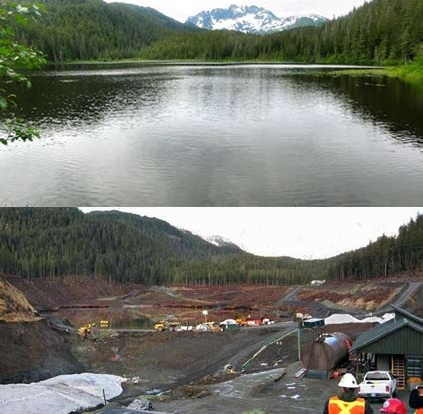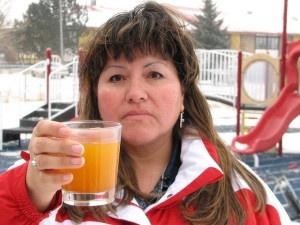We have much more to do and your continued support is needed now more than ever.
Tribes Demand Responsible Mining and Clean Water
This week, leaders and environmental staff members from eight tribes and tribal organizations are flying to Washington, D.C. to ask the Obama Administration to address a problem that impacts us all. Mining companies are discharging huge quantities of untreated, toxic waste into the waters that sustain our fish, wildlife, and communities.

Dirty Discharge

The sad truth is that we would never tolerate mining companies using our waters as waste dumps if it were not for the fact that mines tend to be located in out-of-the-way spots, where they impact rural communities—such as many tribal communities—with limited financial resources and political clout.
What’s especially frustrating is that the Obama Administration could close the mining loopholes with relatively straight-forward changes to the Clean Water Act’s regulations but hasn’t chosen to do so. Making the mining industry operate more responsibly would not require an act of Congress or some grand bargain, merely sufficient political will.
Perhaps a face-to-face with some of the original stewards of the land will encourage the Administration to take action.
Help Protect Grizzly Bears from Mine Waste
![]() Tell the Environmental Protection Agency and Army Corps to close mining loopholes to protect our nation’s waters and wildlife.
Tell the Environmental Protection Agency and Army Corps to close mining loopholes to protect our nation’s waters and wildlife.





















